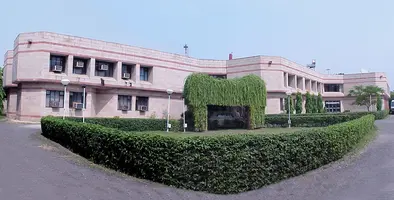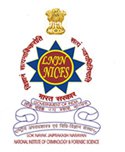
Lok Nayak Jayaprakash Narayan National Institute of Criminology and Forensic Science

The Lok Nayak Jayaprakash Narayan National Institute of Criminology and Forensic Science (LNJN NICFS) is one of India’s premier institutions dedicated to the study and advancement of criminology, forensic science, and criminal justice systems. Established under the Ministry of Home Affairs, Government of India, the institute plays a crucial role in strengthening the country’s criminal justice and law enforcement systems. It offers educational programs, training sessions, and research opportunities in these vital fields, equipping law enforcement personnel, forensic experts, and legal professionals with the necessary tools and knowledge to combat modern-day crimes.
Address and Zip Code:
Lok Nayak Jayaprakash Narayan National Institute of Criminology and Forensic Science (LNJN NICFS)
Sector 3, Rohini,
New Delhi – 110085,
India
Zip Code: 110085
Introduction to LNJN NICFS
The Lok Nayak Jayaprakash Narayan National Institute of Criminology and Forensic Science (LNJN NICFS), established in 1972, is an esteemed institution under the Ministry of Home Affairs that conducts research, offers training programs, and provides consultancy services in the areas of criminology, forensic science, and criminal justice. It is a pioneer in enhancing the quality of forensic investigations and contributing to criminological research in India.
The institute is named after Lok Nayak Jayaprakash Narayan, a revered social reformer and political leader who played a vital role in India’s independence struggle. The naming of the institute after him signifies its commitment to justice, transparency, and societal reform. LNJN NICFS is instrumental in providing the necessary scientific, legal, and administrative support to the criminal justice system, with a specific focus on modernizing forensic science practices and developing a skilled workforce in this field.
Mission and Objectives
The primary mission of the LNJN NICFS is to improve the functioning of law enforcement agencies and the judicial system by fostering the application of scientific techniques in crime investigation, enhancing the quality of criminology education, and conducting meaningful research in forensic science. The core objectives of the institute are:
- Education and Training: To provide high-quality education and training to professionals in criminology, forensic science, and criminal justice. This includes developing programs that improve the knowledge and skills of law enforcement officers, judges, lawyers, and forensic scientists.
- Research and Innovation: To conduct cutting-edge research in the areas of criminology, forensic science, and criminal law. The institute aims to develop innovative forensic methods, enhance investigation practices, and contribute to the scientific understanding of crime and criminal behavior.
- Support for Law Enforcement: To support law enforcement agencies by offering consultancy services, providing training, and developing better investigation practices. This ensures that police officers, forensic teams, and judicial officers are well-prepared to handle complex crime investigations.
- Collaboration and Networking: To establish collaborative relationships with national and international institutions, fostering knowledge-sharing, capacity-building, and joint research initiatives in the fields of criminology and forensic science.
Programs and Courses Offered
LNJN NICFS offers a variety of academic programs and courses designed to cater to the growing needs of criminology and forensic science. These programs not only focus on theoretical knowledge but also provide practical insights into crime investigation and forensic practices.
1. Master of Science (M.Sc.) in Forensic Science
The M.Sc. in Forensic Science is a comprehensive two-year postgraduate program aimed at students who want to specialize in forensic science. The curriculum covers a range of topics including forensic toxicology, forensic chemistry, forensic biology, DNA analysis, ballistics, and forensic pathology. This course equips students with the skills required for carrying out criminal investigations using forensic methods and technologies.
2. Master of Science (M.Sc.) in Criminology and Criminal Justice
This postgraduate program is designed for those interested in criminology and criminal justice. It offers an in-depth study of criminological theories, criminal behavior, crime prevention, and criminal law. Students learn to apply criminological theories to understand crime patterns and develop strategies for crime control. The program also focuses on the functioning of criminal justice systems, including law enforcement, the judiciary, and correctional systems.
3. Postgraduate Diploma in Forensic Science
The Postgraduate Diploma in Forensic Science is a one-year course designed for individuals seeking advanced knowledge in forensic science. The program covers key areas such as crime scene investigation, fingerprint analysis, forensic toxicology, and criminal profiling. This diploma prepares professionals for careers in forensic labs, law enforcement agencies, and judicial bodies.
4. Diploma in Criminology and Criminal Justice
This diploma program focuses on criminology and criminal justice, providing a deep understanding of crime theory, criminal behavior, legal procedures, and criminal investigations. It is designed for individuals working or aspiring to work in law enforcement, criminal law practice, or criminological research.
5. Certificate Courses in Criminology and Forensic Science
For professionals looking to enhance their skills in specific areas, LNJN NICFS offers certificate courses in areas such as forensic psychology, cybercrime, criminal law, forensic medicine, and crime scene management. These courses are designed to provide practical, hands-on learning that enables participants to specialize in a specific aspect of criminology or forensic science.
6. Training Programs for Law Enforcement and Judicial Personnel
The institute organizes regular training workshops and seminars aimed at law enforcement officials, police officers, judges, and forensic professionals. These programs focus on improving investigative techniques, understanding forensic evidence, managing crime scenes, and enhancing overall efficiency within the justice system.
Research and Development
LNJN NICFS plays a crucial role in research and development in the fields of criminology and forensic science. The research division is engaged in a variety of activities aimed at improving criminal investigations, developing new forensic techniques, and advancing criminological knowledge. Some areas of focus include:
- Forensic Technology and Methodology: Research is conducted to develop newer techniques for forensic analysis, including DNA testing, fingerprinting, ballistics, and toxicological examinations. The institute also investigates cyber forensics to deal with the growing threat of cybercrime.
- Criminal Behavior and Victimology: LNJN NICFS also focuses on understanding the psychology of criminal behavior. Research in victimology and criminal profiling helps professionals develop better intervention strategies and crime prevention methods.
- Crime Prevention and Criminal Justice Reform: The institute’s research aims to enhance the functioning of law enforcement agencies and judicial bodies. It explores effective methods for crime prevention and advocates for reforms in the criminal justice system.
- Digital Forensics and Cybercrime: As cybercrime continues to rise, the institute is increasingly focusing on research in digital forensics. This includes investigations into hacking, identity theft, and online fraud, as well as methods for gathering digital evidence in criminal cases.
Infrastructure and Facilities
LNJN NICFS is equipped with advanced facilities to support its educational programs and research activities. Some of the key infrastructure and resources at the institute include:
- Forensic Science Laboratories: The institute is equipped with modern forensic laboratories that specialize in various forensic disciplines, including toxicology, biochemistry, ballistics, and crime scene analysis.
- Crime Scene Simulation Labs: LNJN NICFS has well-equipped simulation rooms where students and trainees can practice crime scene investigations. These labs allow for the creation of mock crime scenes for students to apply their forensic knowledge in a controlled, realistic environment.
- Library and Research Resources: The NICFS library houses a vast collection of books, journals, and research papers related to criminology, forensic science, criminal law, and criminal justice. The library also provides access to international research publications and online databases.
- Seminar and Conference Rooms: The institute has seminar halls and conference rooms where workshops, seminars, and conferences are organized regularly. These events serve as platforms for professionals in the field to network, share ideas, and discuss emerging trends in criminology and forensic science.
Career Opportunities
Graduates from LNJN NICFS are well-prepared for careers in the criminal justice system, law enforcement agencies, forensic science laboratories, research organizations, and law firms. The institute provides strong career support, helping students with job placements and offering networking opportunities through internships and collaborations with various government and private organizations.
Some common career paths for LNJN NICFS alumni include:
- Forensic Scientist in government and private forensic labs.
- Criminal Psychologist working with law enforcement and judicial authorities.
- Police Officers specializing in crime scene investigations and forensics.
- Criminologists working with research institutions, think tanks, and law enforcement agencies.
- Legal Experts in criminal law and legal consultancy.
Collaboration with National and International Institutions
LNJN NICFS maintains partnerships with numerous national and international organizations. These collaborations help the institute stay at the forefront of criminological research and forensic advancements. The institute regularly engages in knowledge-sharing and collaborative research projects with leading institutions, law enforcement agencies, and government bodies across the world.
Conclusion
The Lok Nayak Jayaprakash Narayan National Institute of Criminology and Forensic Science (LNJN NICFS) is a key institution in India that plays a vital role in advancing criminology and forensic science education. Through its specialized training programs, cutting-edge research, and commitment to innovation, NICFS is instrumental in supporting the Indian criminal justice system and improving the quality of forensic investigations. By preparing skilled professionals in criminology and forensic science, LNJN NICFS is contributing to a more effective and efficient criminal justice system in India
Courses/Programs
| Serial# | Title | Estimated Cost | Program type |
|---|
